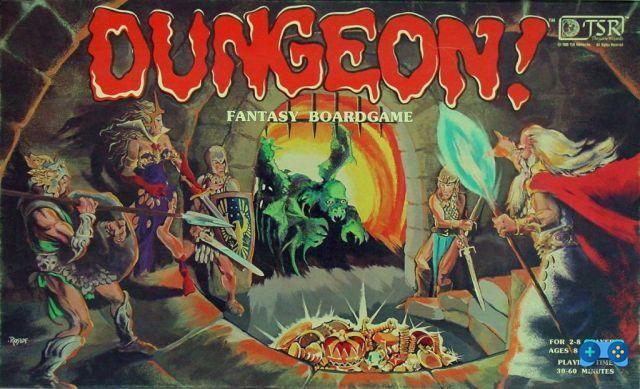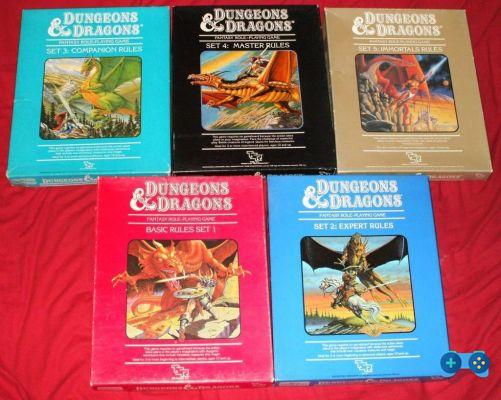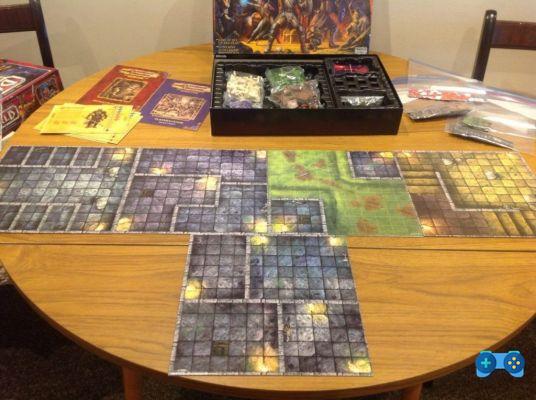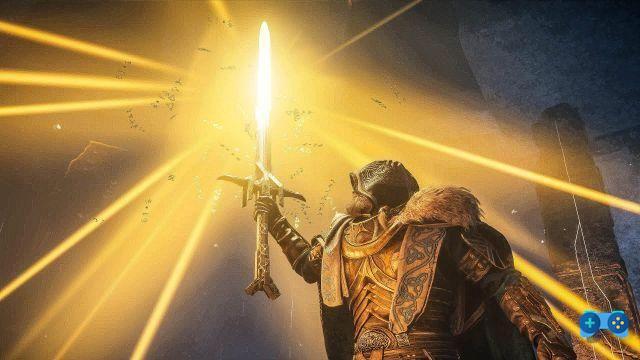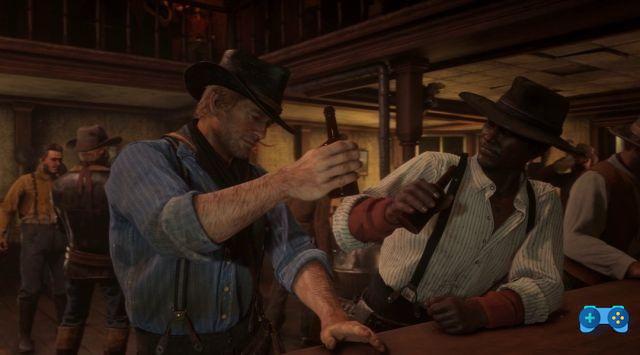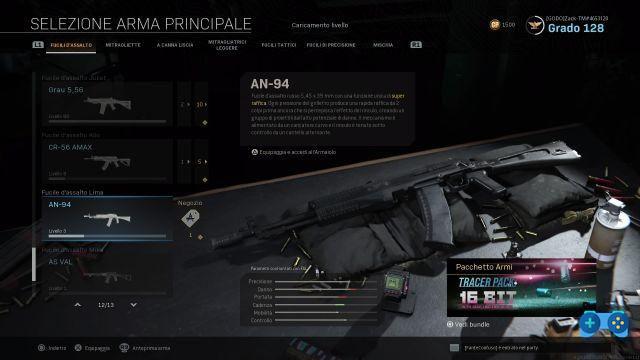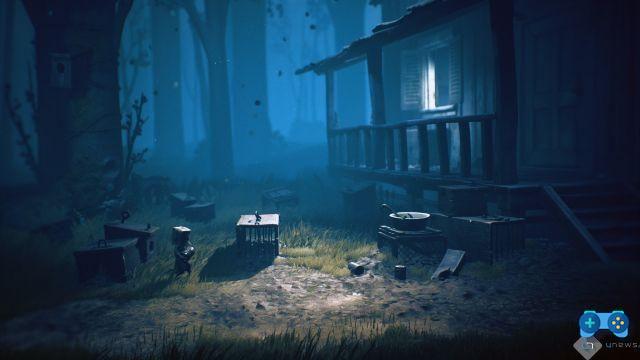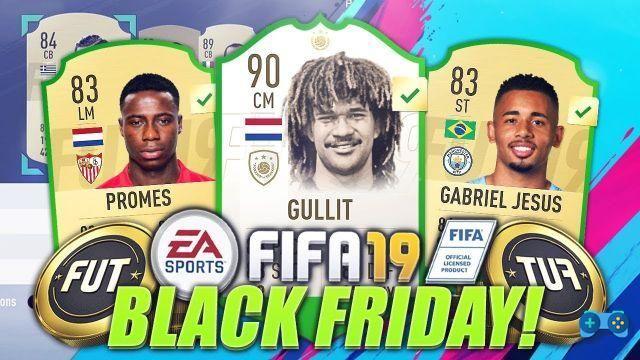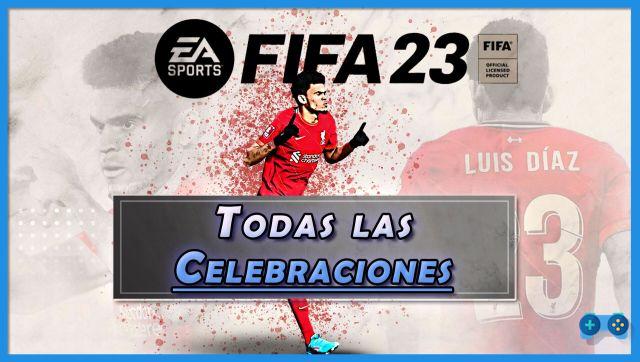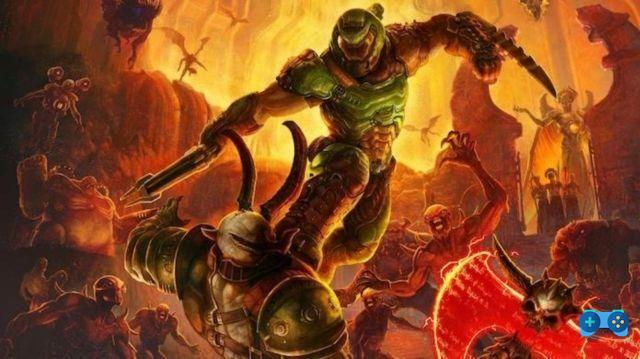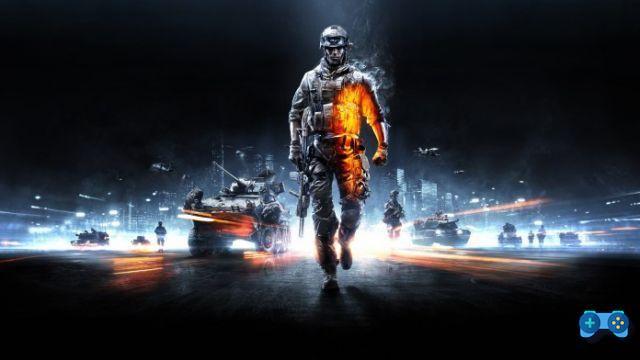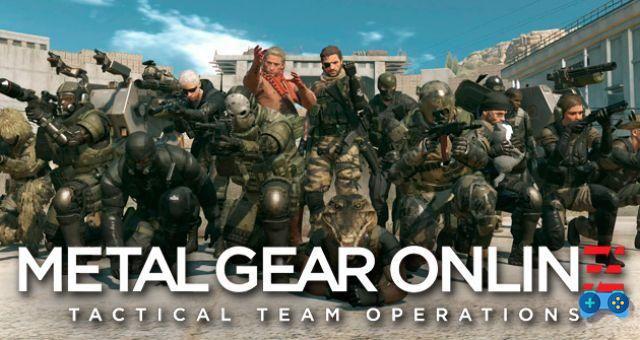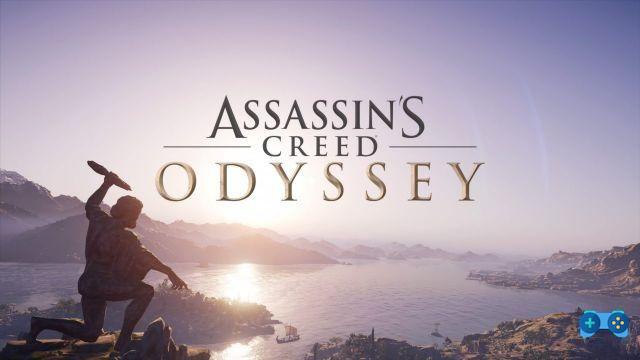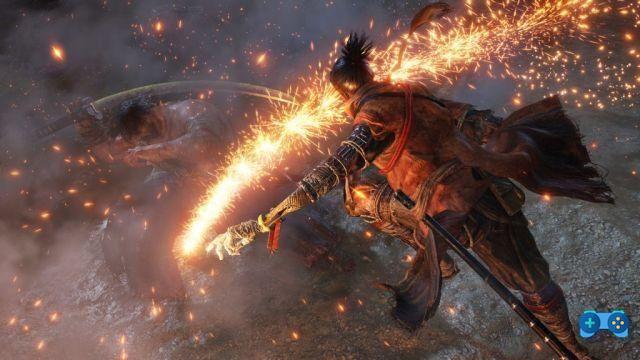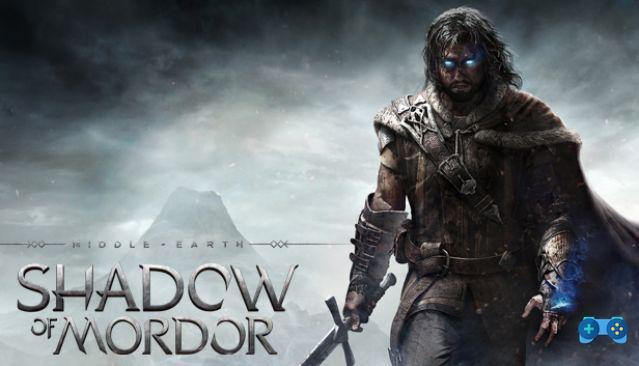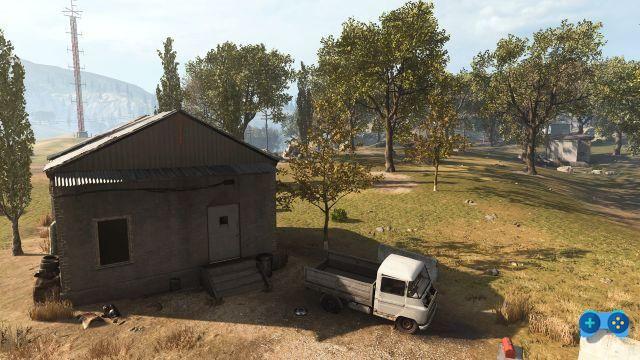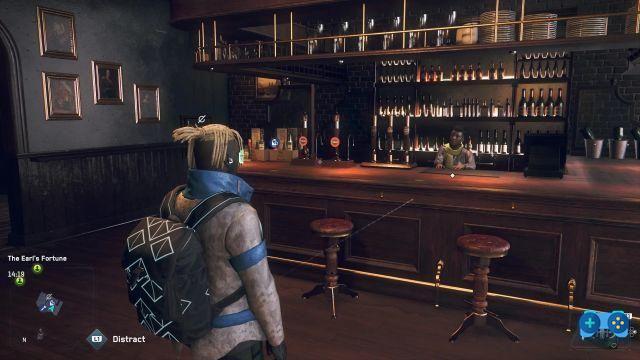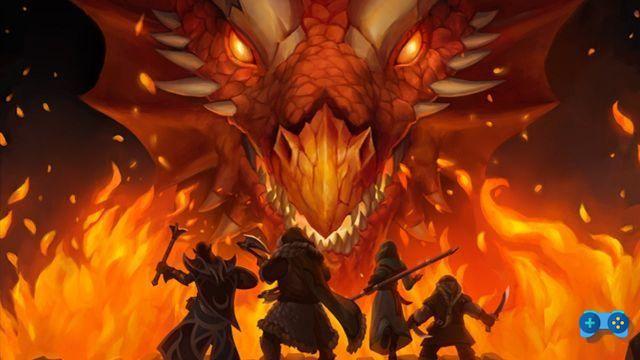
Introduction
The year we are living has deeply upset our habits. In fact, we are increasingly getting used to new realities and new ways of acting and thinking. Going out, discovering, traveling now seem like words divorced from our vocabulary. What if we told you that instead there is a way to discover new and mysterious realities? Traveling between medieval kingdoms in conflict with each other, visiting post-apocalyptic cities or wandering among the wastelands that tell the story of a lost legacy. All this is possible thanks to the role-playing game, the most famous incarnation of which is undoubtedly Dungeons & Dragons, abbreviated to D&D.
From a niche phenomenon to a global phenomenon
Dungeons & Dragons, published way back in 1974, is still tremendously relevant today. Its history, dotted with various editions that have changed and distorted its structure and mechanics over time, has reached its fifth episode, or the fifth edition that has, once again, enhanced its international and intergenerational success. In fact, D&D players are of all ages, from the youngest newbies, captured by the immediacy with which you can start playing, to the veterans of many battles, whose spirit is perhaps linked to a depth of play that can be virtually infinite.
Nowadays D&D depopulates on Twitch where some campaigns have been going on for years and are regularly followed by a flood of fans around the world. Many personalities of the show, especially “made in USA”, often play roles, or rather, they play with passion, helping the expansion of a phenomenon that is conquering more and more people. There W, owner of the Dungeons & Dragons brand, announced a 2020% increase in D&D sales in Europe for 65 compared to the previous year. A clear sign that this is truly a golden age for the historic brand.
Start playing
Dungeons & Dragons is like clay: it can be shaped into any shape you want. Participants in the game may indeed prefer a simple approach, for example a group of characters who face an adventure to be completed in a single game session (defined, in this case, an adventure one-shot) as for example it could be defending the small fort of an isolated village from the onslaught of terrifying orcs, or a more complex one. The latter provides for more game sessions and the players will be called upon to complete more high-sounding feats, connected to each other, which make them become heroes recognized throughout the kingdom (in this case, we speak of campaign).
Character creation
In any case, the player must first create his character: may want to interpret a crude dwarf warrior, used to solving his problems with an ax, or a cultured elf wizard, scholar of the secrets of magic, or still a mysterious human thief, elusive and easy-going with which he always manages to get out of the most complicated situation, or still a devotee to an evil entity belonging to a semi-known exotic race.
Il Player's Handbook contains a collection of races and classes that a player can choose to bring their character to life. These can be further characterized through subraces, subclasses, abilities and alignment (the moral compass of the character). In this way each character, even if belonging to the same race or class as another, will still be profoundly different from the latter. And this is where the magic of D&D lies: you can give life to a character that reflects the appearance, the character or the choices of those who created it or that is anything but. You can wander with the imagination and give life to the most incredible characters.
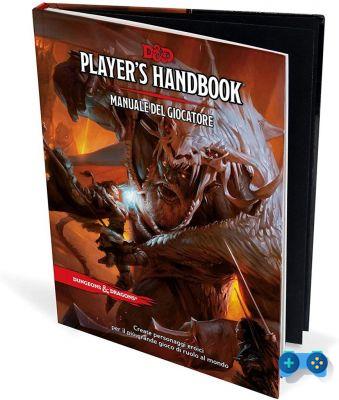
The game tools
After having created, with the help of the Player's Handbook, your character, you then move on to write down all his information and skills on the main game tool, that is the character sheet. Let's start with feature scores which then translate into a whole series of skills in which the character will be more or less capable. Let us take the example of a barbarian strongman: he will surely have a high Strength score, which will allow him to carry more weight and cause more damage to enemies with heavy weapons. However, we imagine him with little intelligence, which will make him not so brilliant in reasoning or in solving riddles and environmental puzzles.
Here, each character will have pros and cons and that's part of the fun. It is not plausible that a character excels at everything he does. The secret therefore is to create a party (group of characters) balanced and endowed with different skills, characters and facets. But let's get to the other game tool that embodies the essence of Dungeons & Dragons: the dice. Indeed, the dice! D&D foresees the possibility that the outcome of virtually any action a character wants to take can be decided by a roll of the dice. The most used is the infamous d20.
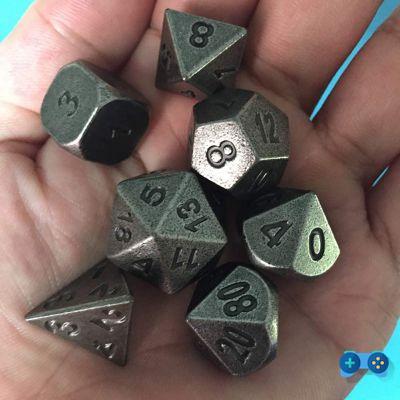
The use of dice
Let's say two characters want to go unnoticed by a group of guards. At this point they will make a stealth check, that is, they will roll the d20 and add (or subtract) their stealth modifier, a bonus (or malus) indicated on the card and deriving from their initially chosen ability scores. This result will determine how they perform their action, i.e. whether they manage to go unnoticed or not. This same game mechanic applies when, for example, a character wants to make an attack to hit an enemy.
As a rule, with a die roll of 20 you will have a critical success, that is an action that is successful so well as to have extremely positive implications, while with a roll of 1 you will have a critical failure, that is, an action that failed at worst. of the ways and that could bring with it other nefarious aftermath.
But, hey, how does a player know if his character actually managed to go unnoticed or hit the enemy? Simple, with the help of another player, who plays the role of Dungeon master.
The Dungeon Master
You may be wondering "How many players do you need to play D&D?" and the answer is that 2 people can start playing, although a group of 5 is often considered to be ideal. Regardless of how many members of your game group are, however, one thing is necessary. One of them must perform the role of Dungeon Master, also rendered as a DM or Master. This is usually the player who shows the most interest in the game or simply the most experienced. His duties include managing (and impersonating) NPCs (non-player characters), enemies and events that occur in the game world, such as determining the outcome of characters' actions.
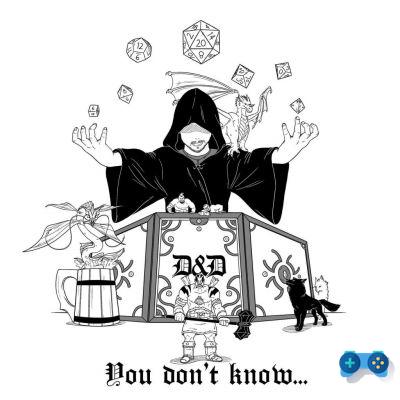
"The first rule of Dungeons & Dragons is that you don't win in this game"
Playing also as the enemies, it could therefore seem that the Master is the opponent of the players and that they must defeat him, but this is not the case. The first rule of Dungeons & Dragons is that you don't win in this game, but you live an experience that the Master shares with the players. He is therefore not opposed to them but lives this incredible journey with them. Of course, to do the Master you need to have at least a basic knowledge of the rules of the game, its mechanics and situations in order to be able to manage the succession of events. To do all this he is helped by the presence of a manual dedicated to him called his own Guide of the Dungeon Master.
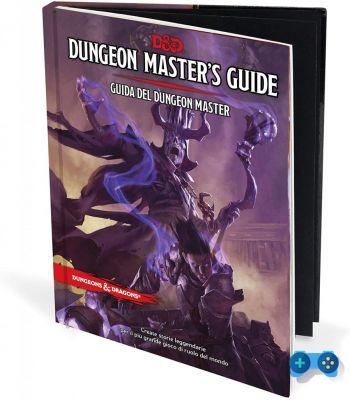
However, he doesn't just play with the players and apply the rules. In fact, behind his iconic screen that hides his notes and the information he needs, the Master can easily decide to bend the game and the rules to his will. Let's take an example: we said before about two characters who wanted to go unnoticed in the eyes of the guards. The DM establishes (keeping this information for himself) that only those who manage to get a 15 or more on the stealth check will be able to go unnoticed. However, he could decide to reward a player who has played (in this case interpreted) the scene in a creative or detailed way, despite having scored, say, a 13. In short, he is the one who pulls the strings of the game.
Obviously there must be common sense, and ridiculous and excessive claims should be avoided, both on the part of the players (pretending, for example, to climb the highest mountain in the kingdom without equipment just because you got a high score on the dice roll) both by the Master (being too punitive or permissive with your players) by focusing on enjoying the fun while giving the best of yourself.
Game worlds
What story can be played? Simple, any! Indeed, the Master can write one of his own, using other resources made available. For example the Monster Manual, which contains the description and characteristics of a whole series of creatures, small and large, docile and ravenous, which he can insert at will in the game sessions. Or you can use one of the countless stories, official or unofficial, which can be purchased in print or digital format. As for the current edition of D&D, there are medieval fantasy, vampire, post-apocalyptic, and so on. The network is teeming with (unofficial) homebrew manuals with new monsters, races, classes, powers and customizations.
Ad hoc gaming experience
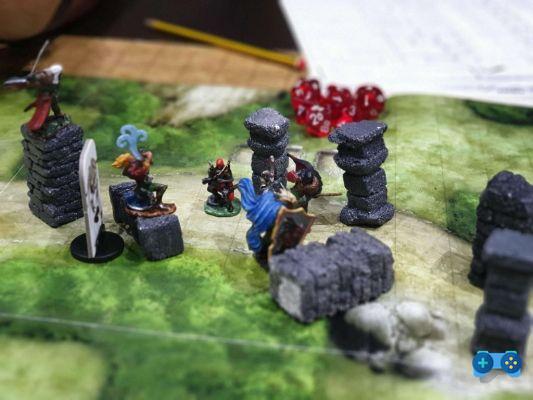
The essential to playing Dungeons & Dragons is: a character sheet, dice, a pencil and… the imagination of your mind. There are so many additional materials that can be used to make it more authentic, more realistic or more immersive, but this is absolutely optional. Indeed tiles, squared maps, miniatures and other objects implement the game experience with new sensations but, we repeat, they are not necessary for the development of the game. The Master himself may decide to prepare some material to give to his players. For example, NPC images, game maps, etc., but this is also entirely optional. Some items may add nothing to the gaming experience or even create confusion among the players at the table. It will therefore be necessary to evaluate which tools to use and which not.
Live and online
Another fundamental aspect of the gaming experience is whether the game sessions will be played live, at the home of the Master or another player, or will be done online. There are various sites and platforms that allow a campaign to be carried out online. In the latter case it should be specified that a live Dungeons & Dragons session is able to convey more authentic emotions. Unfortunately, meeting in person is not always possible or easy, so the possibility of organizing in a fluid way is welcome.
Problems and ideas at the game table
Let's face it: the player who doesn't offer the Master any food or ice-cold beer is bound to see his character go through hell!
Seriously (not so much!) There are some issues or behaviors that could undermine the overall game experience: if the story proposed by the Master is too complicated, players could get lost in the meanders of it, while if he was not properly prepared and if he needed to check the manuals at every die roll, the pace of the session would drop dramatically, undermining the attention of the players, who would get bored not a little.
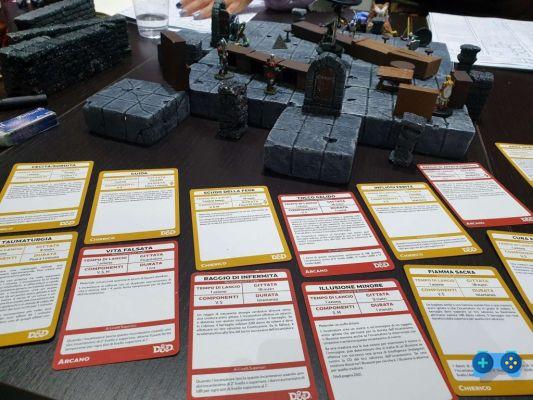
On the other hand, even the players can give trouble to the group, even without necessarily realizing it. For example, a more experienced player could monopolize the attention at the table by doing everything himself, while he should leave the right space for all the components of the party. A more introverted player may find it difficult to express his feelings while remaining little involved in the session, and should therefore be helped by the most confident players so that he can have fun fully.
Another type of player may be distracted, perhaps by using the smartphone. Establishing a common code of conduct can be a practical way to prevent this player from continuing to get distracted and distracting other players, undermining their enjoyment (and consequently everyone else's). In general, the only commandment at the table must be to have fun, trying to give the best of yourself both as individuals and as a group..
The stage is of the characters
It is good that the Master always keep in mind that the protagonists of the story are the players, and therefore he should not replace them by taking the limelight.. The NPCs themselves, however well characterized they may be, should remain in the background, because the stage belongs to the players and their characters. If a player proves himself particularly in the evening, or faces a situation in a creative and surprising way, the Master can give him inspiration. It is a game mechanic aimed at providing bonuses to the dice rolls of the player in question. This is a tool of the Master to make a player understand that he is behaving well and is a stimulus for the players to face the session in a participatory way.
There are no limits
If your play group is close-knit and everyone has the right spirit, there is no challenge that you will not be able to face. No business will be closed to you and no enemy will be invincible. Not to mention the fact that certainly, during the hours of play, different situations will arise. From the funny and comical ones to the serious, sad and dramatic ones, just like negative and positive events happen in a lifetime.
The important thing is to know how to take the good from everything, because it is not said that you cannot get up after a defeat, on the contrary, sometimes rolling can even teach us something that we will carry with us in our life. Our other life.




